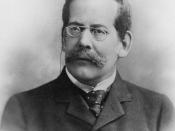INTRODUCTIONSpeaking and writing are called Productive Skills because they involve language production, as opposed to listening and reading, which are receptive skills. Although most of the times more than one skill is used simultaneously, as is often the case of speaking and listening, we are going to treat the four items as discrete ones for the scope of this study.
The purpose of teaching productive skills -in fact, the purpose of language teaching itself- is to enable students to communicate. Communication is an extremely complex phenomenon. When two or more people engage in a communicative activity, we can roughly summarize the situation as these people's necessity of saying something and of achieving something as a result, processing a variety of language from their lexicon store in order to do so.
In this work the nature of teaching productive skills is going to be analyzed to discuss the importance of communication activities in the language classroom.
WORKING ON COMMUNICATIONMany teachers look at teaching productive skills with uneasiness -noisy students, changing sitting arrangement, loss of concentration, increasing teacher's monitoring chores... is communication really worth all this trouble? Why not giving them a nice quiet grammar exercise? Many others complain of "wasting time" when attempting a communicative task. They seem to believe that communication is some extra work you "squeeze" into your syllabus to make it look up-to-date. Herbert Pucha and Mitchel Schratz, in their book Teaching Teenagers, answer this widely spread claim: "Communicative language teaching can work within the context of a clearly defined syllabus. Indeed, most of the time spent in non-communicative activities is time and opportunity wasted" 1In fact, teaching productive skills is like taming a lion: risky, demanding, time-consuming and challenging. But as such, it is also an exciting, rewarding and enriching experience. What is more, communication in...


